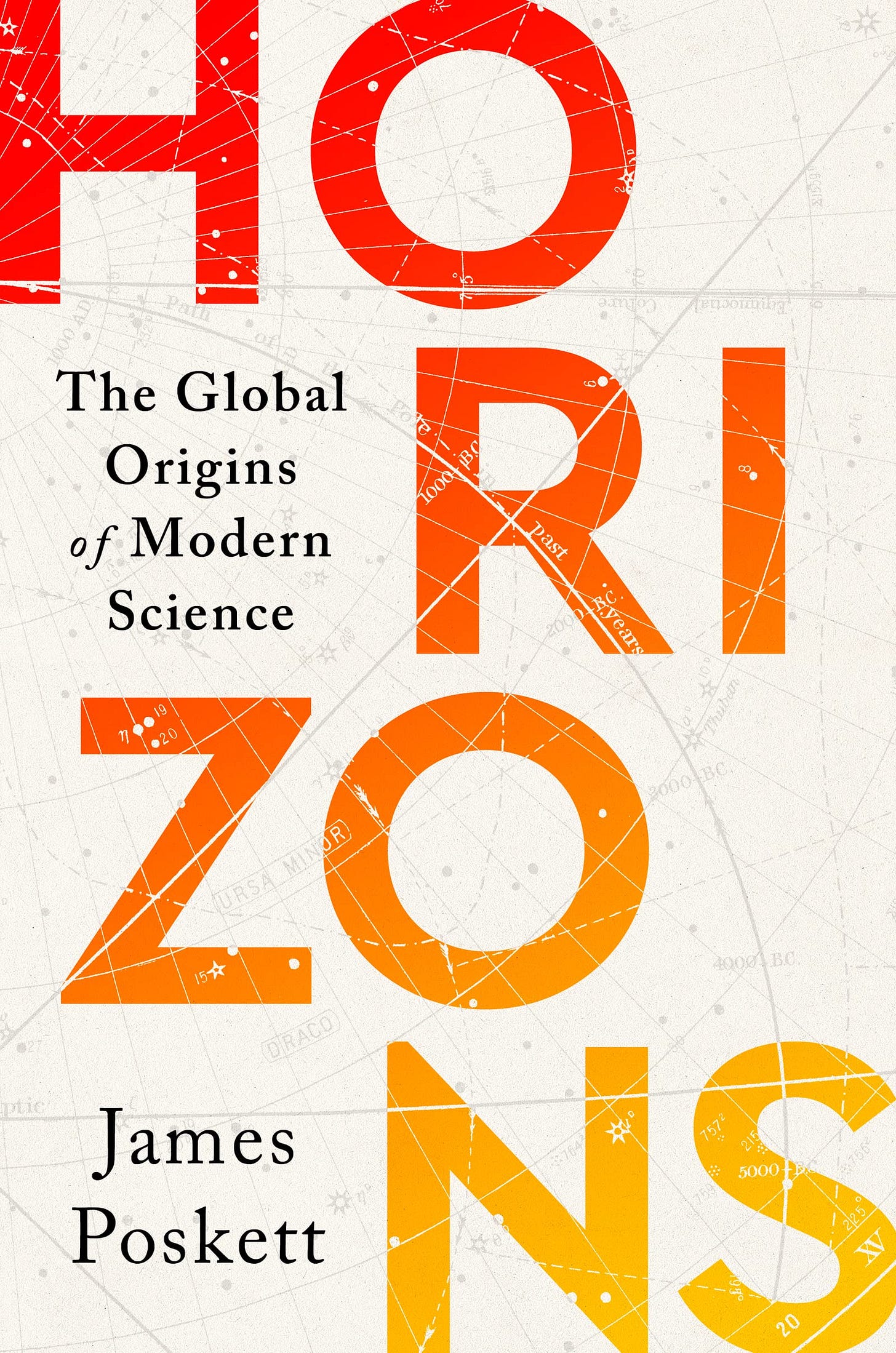
Most histories of science begin with the scientific revolution in Europe during the sixteenth and seventeenth centuries. If we look at Wikipedia, arguably the first stop for many if you google “scientific revolution”, we get the following:
The Scientific Revolution took place in Europe starting towards the second half of the Renaissance period, with the 1543 Nicolaus Copernicus publication De revolutionibus orbium coelestium (On the Revolutions of the Heavenly Spheres) often cited as its beginning.
But was Europe the only place in which modern science originated? Or has Europe been the center of documenting science history, thus artificially placing itself as the center of the story? In Horizons: The Global Origins of Modern Science, James Poskett tells a new story of how modern science originated.
To be sure, Poskett does not deny the great contributions of European scientists in the last 500 years – Copernicus, Newton, Darwin, and Einstein still discovered what they did, for instance. What Poskett does do, however, is give a fuller and richer context as to how these scientists – but also myriad others across the globe – made great discoveries and contributions to the scientific revolution and beyond. Horizons adds context that has been missing in the telling of modern science’s story.
The book is split into four main sections, each covering a defining time range in the context of modern history: the scientific revolution, empire and enlightenment, capitalism and conflict, and ideology and aftermath. Poskett’s perspective is that the story of modern science is embedded within global history of the last 500 years, which includes slavery, empire growth and colonialism, war, and ideological conflict.
A common theme across each of the sections is the idea of global exchange. In the past, as in today, scientists aren’t lone geniuses who work in isolation and change the world. The process of science is one on iteration on past ideas to create or discover something new. Even in the case of the well-known European scientists, their discoveries were fueled in part by prior knowledge from outside Europe.
Especially in the agriculture, natural history, medicine, and geography, indigenous populations in the Americas provided great contributions – often more than Europeans – to these areas of scientific knowledge. That these contributions became global knowledge is largely a result of Europeans colonizing and enslaving these populations and sharing out their ancient knowledge in texts.
Horizons is a fascinating book. It’s impressively researched and detailed. It is a big book, however, and I found some parts a tad tedious to read through. Overall, I’d definitely recommend it, especially for those interested in the history of modern science and the fuller global context surrounding it.
Published: March 2022
Publisher: Mariner Books
Format: Hardcover
If you think this sounds interesting, bookmark these other great reads:
On The Origin of Evolution: Tracing ‘Darwin’s Dangerous Idea’ from Aristotle to DNA by John Gribbin and Mary Gribbin (2022) | Read my full review
The Upright Thinkers: The Human Journey from Living in the Trees to Understanding the Cosmos by Leonard Mlodinow (2015)
To Explain the World: The Discovery of Modern Science by Steven Weinberg (2015)
This post contains affiliate links, allowing me to earn a small commission when you purchase books from the link provided. There is no cost to you, and this will allow me to keep this newsletter free and open to all. Happy reading!





